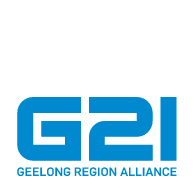Golden Plains Shire Council has commenced the preparation of a new Structure Plan for Smythesdale, providing direction for future growth and development in the town.
The new Smythesdale Structure Plan will comprehensively address factors influencing Smythesdale including bushfire risk, the natural environment, land supply and projections for residential and commercial growth.
The Plan will provide a framework for new residential and commercial land and may propose changes to planning controls affecting land as well as identify the need for new projects, open space, recreation and community infrastructure to meet requirements for the future.
Currently, there is an Urban Design Framework for Smythesdale that was created in 2006. Most of the land designations within this Framework have been rezoned, developed or are soon to be activated which means a new plan is needed to guide decision-making on growth matters in Smythesdale for the next 25 years.
Have Your Say on the Smythesdale Structure Plan (see also update due to COVID below)
Council wants to hear from local Smythesdale and Scarsdale residents about how they want Smythesdale to develop into the future. The Smythesdale Structure Plan Survey is open from Thursday 8 July to Thursday 12 August and has been sent by mail to all residents of Smythesdale and Scarsdale, arriving in mailboxes next week (from 12 July).
The survey can also be completed at goldenplains.vic.gov.au/consultations or you may pick up a copy of the survey at Council’s Customer Service Centre, The Well, 19 Heales Street, Smythesdale. Completed paper surveys may be emailed to enquiries@gplains.vic.gov.au or mailed to: Golden Plains Shire Council, PO Box 111, Bannockburn, VIC, 3331, marked ‘Attention: Smythesdale Structure Plan’.
Council planning staff will hold engagement sessions, welcoming Smythesdale and Scarsdale residents to stop by and talk about the Smythesdale Structure Plan. Visit a drop-in session at The Well, 19 Heales Street, Smythesdale from 4.30 to 6pm on Thursday 15 July or Council’s stall at the Smythesdale Market from 10am to 2pm, Saturday 17 July (in the event of inclement weather, this consultation will be held at The Well).
Council’s Strategic Planning team is also available to speak directly with residents about the Smythesdale Structure Plan – call 5220 7143.
Mayor Cr Helena Kirby encouraged local residents to share their views on the future of Smythesdale.
“We look forward to hearing from Smythesdale and Scarsdale locals to ensure Council develops a Smythesdale Structure Plan that meets the community’s expectations and guides positive growth in the township over the next 25 years,” Cr Kirby said.
“Over the past few months, we’ve had some fantastic engagement with the people of Smythesdale, Scarsdale and the northern townships with residents talking to us at Coffee with your Councillors and consultations on the Digital Hub at The Well, Three Trails Project and Northern Streetscapes Project. There is great work happening in the north of the Shire and this community feedback has had a real impact in shaping these projects.”
The Smythesdale Structure Plan builds upon the planning work of the Northern Settlement Strategy, which was adopted by Council in 2019. The Plan is expected to be presented to Council in late 2021.
UPDATED 19 July 2021 – SMYTHESDALE ENGAGEMENT RESCHEDULED
Due to the current snap lockdown, Council has rescheduled the weekend’s postponed in-person engagement on the Smythesdale Structure Plan.
The in-person session that was planned for Saturday 17 July will now take place from 10 am to 12 pm on Saturday 31 July at The Well, 19 Heales Street, Smythesdale.
Community members will also be able to take part in an additional online engagement opportunity via Zoom on Thursday 22 July from 4 to 6pm.
For all the details on how to participate, visit goldenplains.vic.gov.au/consultations.
Residents can also complete the Smythesdale Structure Plan Survey available on Council’s website or complete the paper survey mailed to all Smythesdale and Scarsdale residents and return by email to enquiries@gplains.vic.gov.au or mailed to:
Golden Plains Shire Council, PO Box 111, Bannockburn, VIC, 3331, marked ‘Attention: Smythesdale Structure Plan’.
The Smythesdale Structure Plan Survey is open from Thursday 8 July to Thursday 12 August.
Source: Golden Plains Shire media statements












